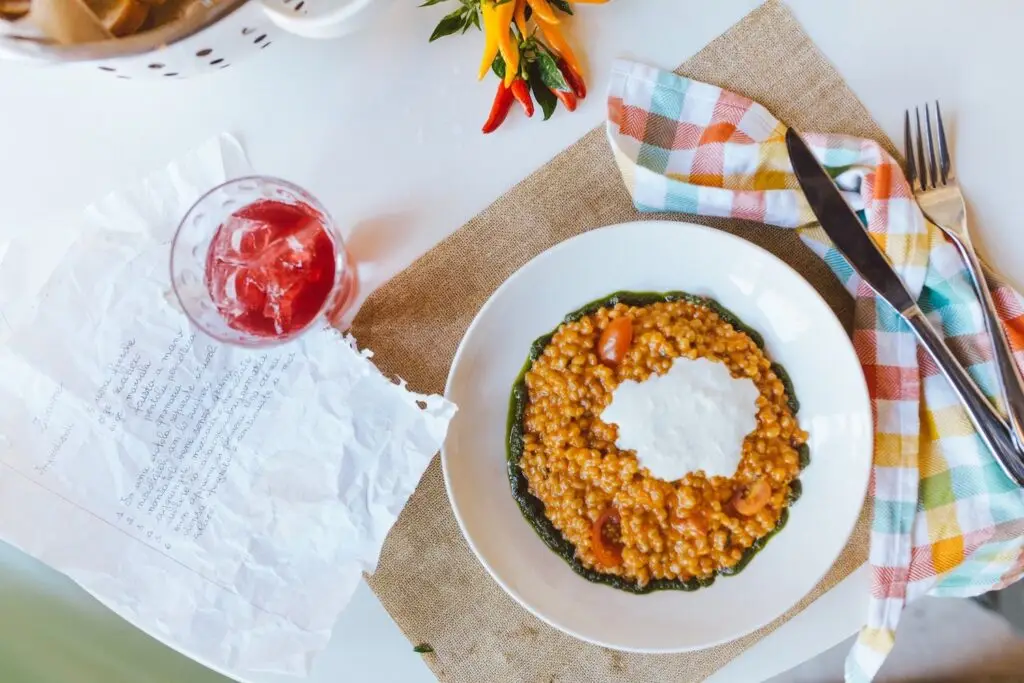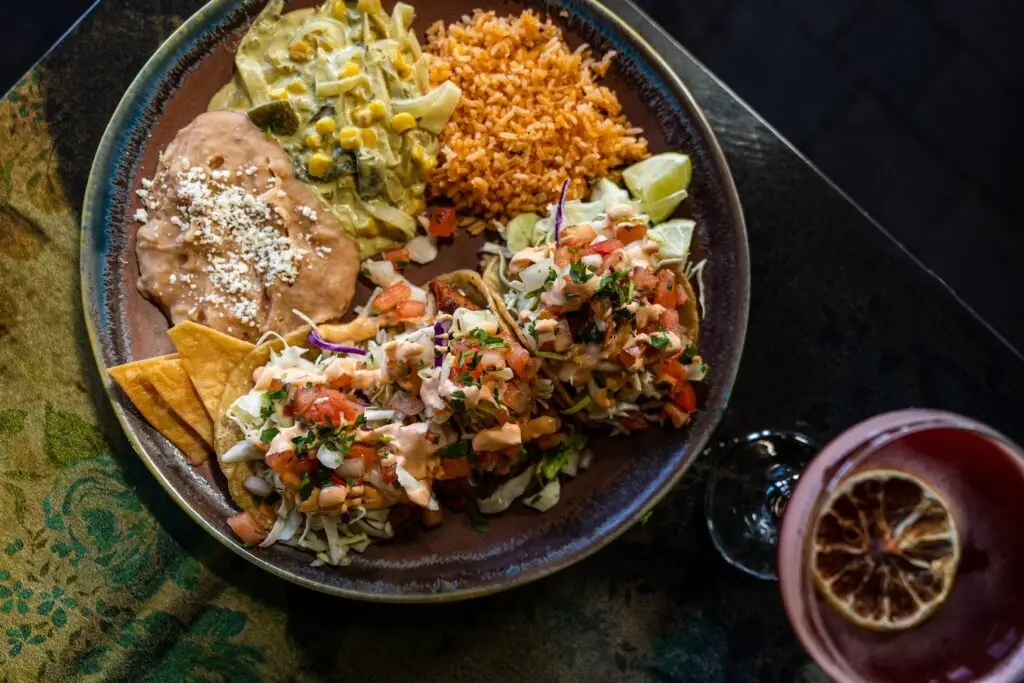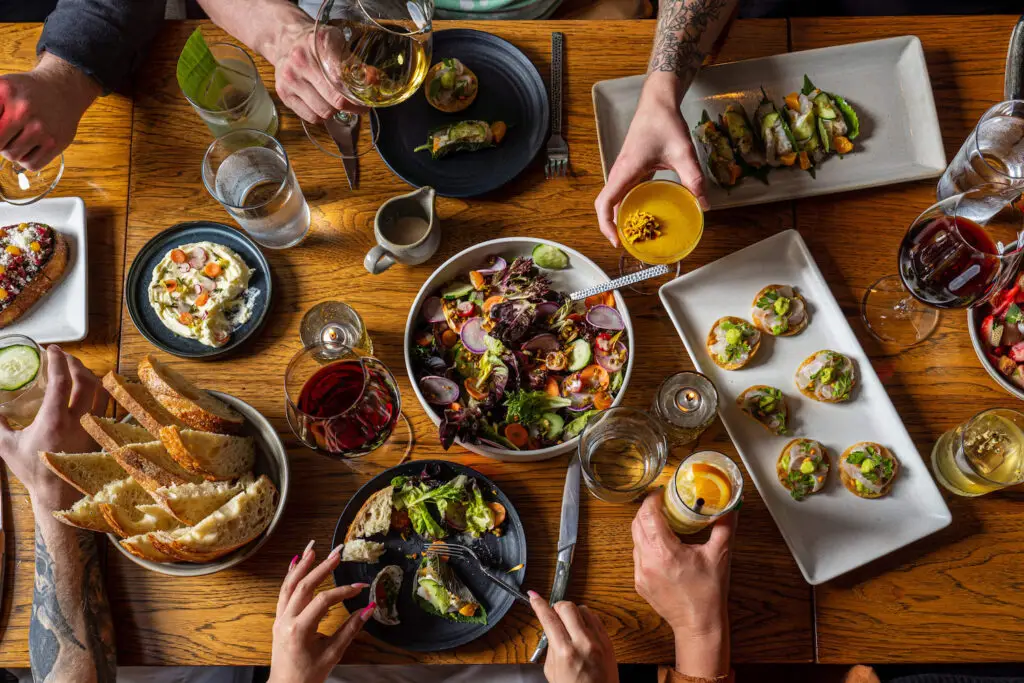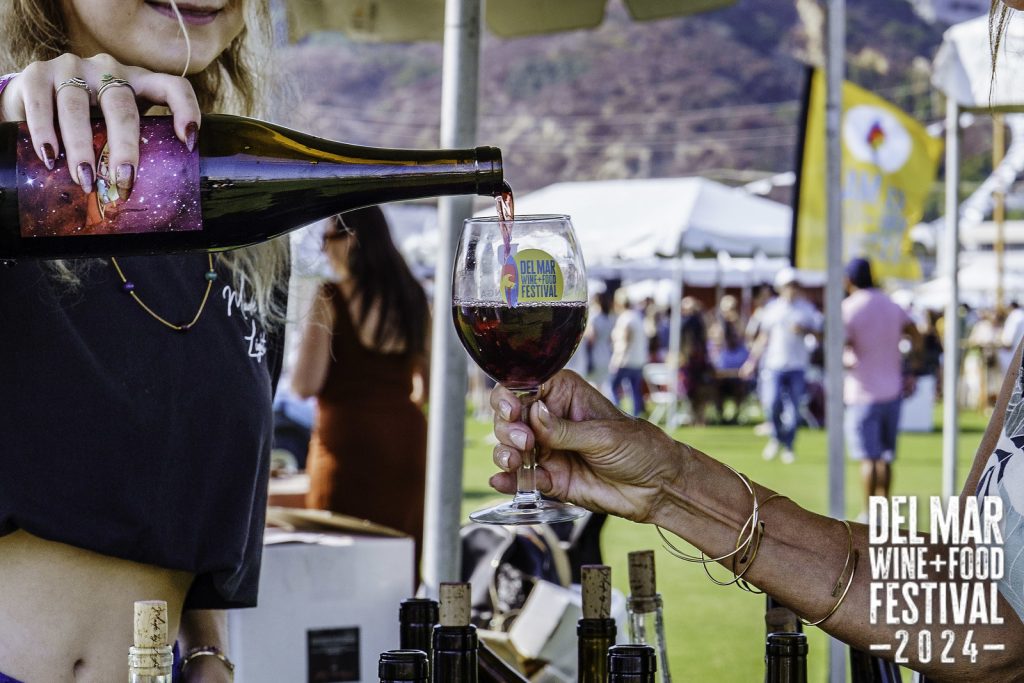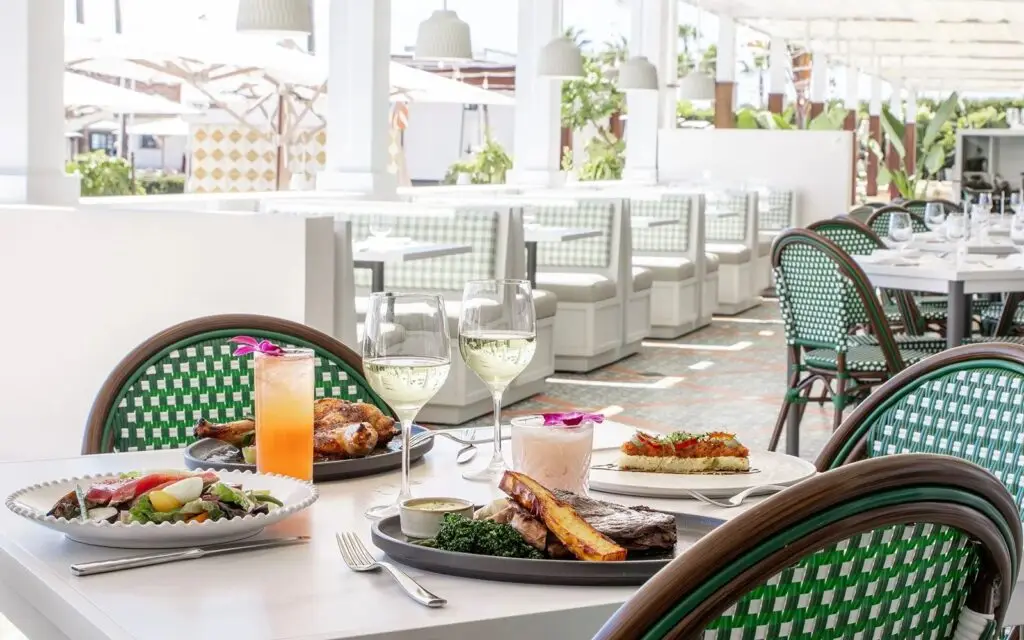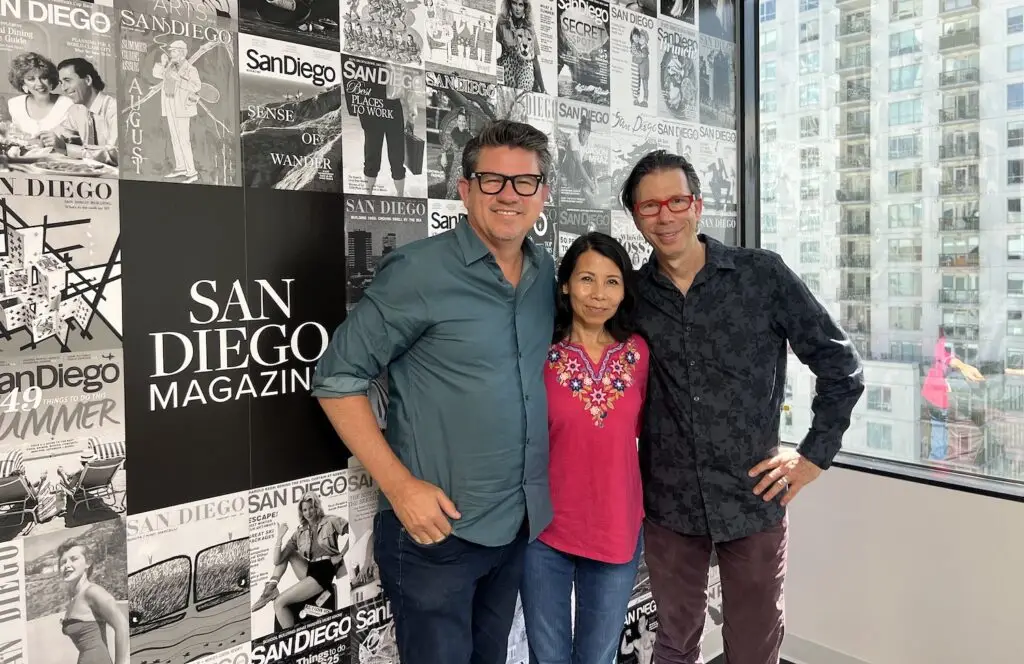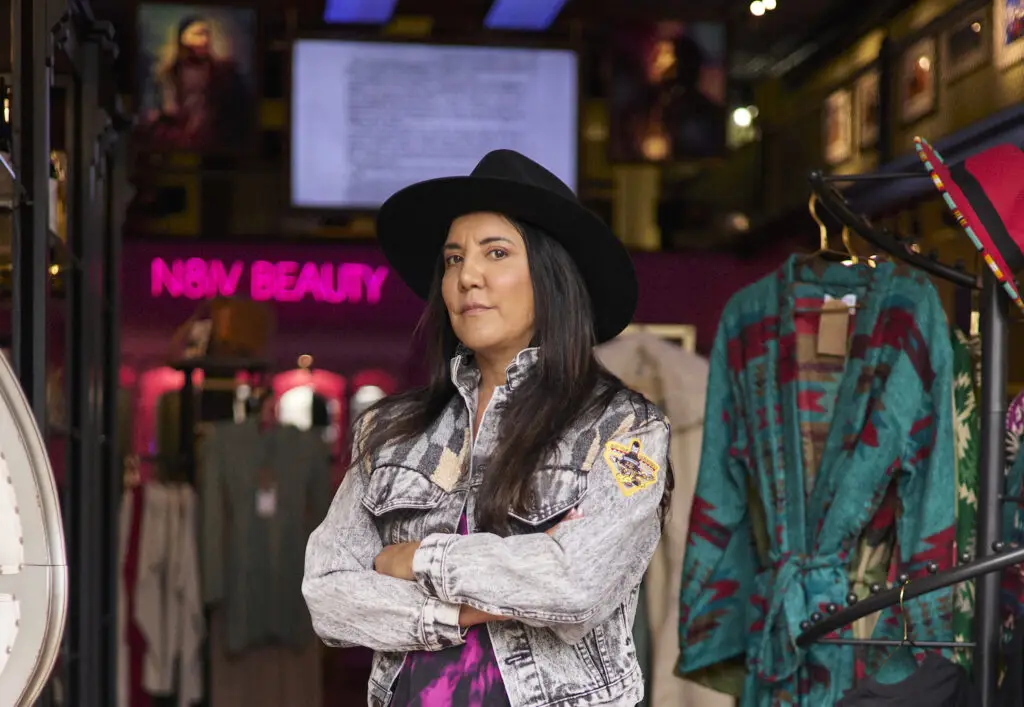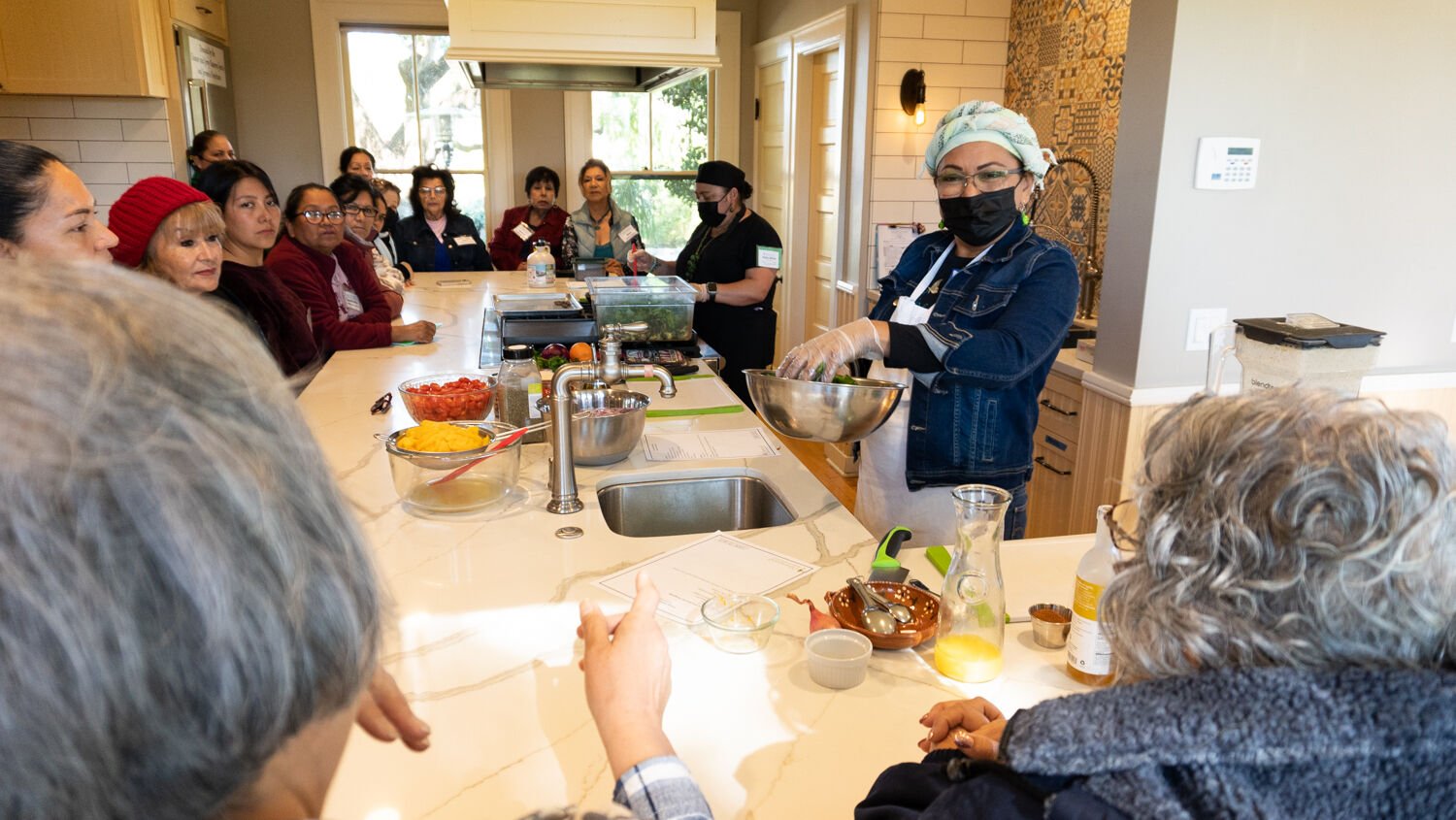
2023-03-02_Digital_Sacred-Spaces-1.jpg
Photo Credit: Mateo Hoke
In a quiet neighborhood of National City, beneath an immense fig tree, a garden bristles with sweet peas and lettuce, and locals take home organic veggies for small donations.
Beyond the rows of flourishing produce lies a butter-yellow house with a sunny, tiled kitchen. There, 18 women—the tias and mamas and abuelitas who form the bedrock of the city’s community—learn to transform spirulina into kid-friendly smoothies and chia seeds into dessert.
“It’s a type of culinary medicine,” says Yvonne Martinez of Olivewood Gardens‘ Cooking for Salud program. Taught in Spanish, the free, eight-week course teaches enrollees how to craft nourishing meals with fresh ingredients.
Graduates receive the title “Kitchenista.” Armed with the motto “vegetales locales son mejores” (“local veggies are better”), the Kitchenistas emerge with new knowledge about seasonal eating, healthy portions, and sustainable composting—and the confidence to instruct others.
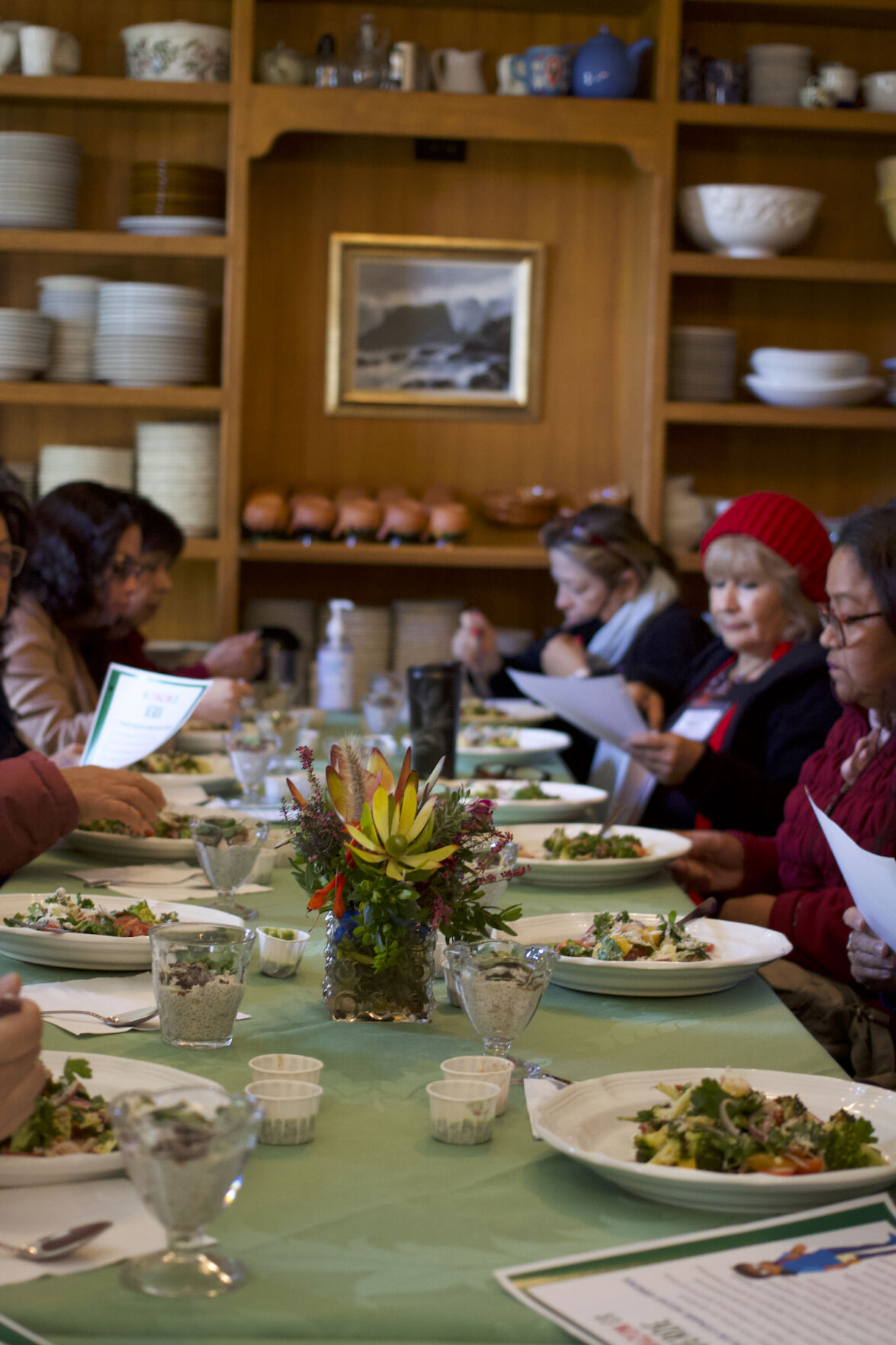
olivewood-kitchenistas-sdm-0323.jpg
Photo Credit: Mateo Hoke
Martinez became a Kitchenista in 2022 after a doctor advised her to get serious about her health as she aged. Not only did the program transform her physically (“My doctor said, ‘Yvonne, what did you do? This is like a miracle,’” she recalls), but it also provided a space for her to build relationships. The Kitchenistas teach one another new skills, like knitting and soapmaking, and provide resources and support to members who are struggling. “You never feel alone,” Martinez says.
Cooking for Salud graduates its 25th cohort of Kitchenistas this month, bringing their numbers to more than 400. But their knowledge touches thousands more lives. The Kitchenistas host healthy cooking demonstrations for parents in National City schools and pass nutritious recipes to their loved ones.
They’re working to transform National City from an area disproportionately impacted by food-related health conditions to one where every family holds the tools needed to eat and live well.
PARTNER CONTENT
As Kitchenista Raquel Quiñones put it, “Si no hay una persona, no va a haber otros.” If there isn’t one person, there won’t be others.
